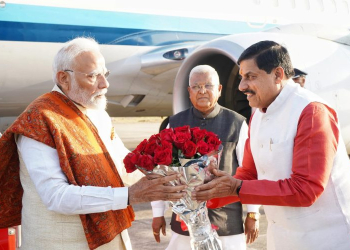Hyderabad: Healthcare professionals have called for taking a pledge on Mother’s Day this year to strive to reduce maternal mortality in India, which is a concern even in the 21st century.
India is rated among those low and middle-income nations from around the world, which together constitute 90 per cent of the total maternal mortality cases.
Governments in India have been focusing on initiatives to improve maternal health indicators. Much progress has been made in ending preventable maternal deaths in the past two decades.
Globally the number of women and girls who die each year due to issues related to pregnancy and childbirth has dropped considerably, from 451,000 in 2000 to 295,000 in 2017, a 38 per cent decrease. But, this number must improve further, and must happen fast.
Every year on Mother’s Day, people spam social media platforms with messages about their mothers and the love and affection they have with them but this year doctors have called for taking a pledge to reduce mortality rate. They say it is important we look at the reasons for the high rate of maternal mortality and means to tackle the problem.
According to Dr Sirisha Mullamuri, Consultant Obstetrician & Gynecologist, SLG Hospitals, severe bleeding during and after delivery is among the major complications that account for nearly two-thirds of all maternal deaths, along with high blood pressure during pregnancy (known as pre-eclampsia and eclampsia), and clot formation and other complications from delivery or unsafe abortions.
“Postnatal depression is one of the emerging causes of harm to mother’s physical and mental health across the globe. Mothers can overcome this as there is a lot of help available from the health sector as well as from the government. Talking therapy makes things lighter for them. India is fast overcoming the menace of child marriages which could lead to pregnancies in adolescence. But these marriages and related pregnancies must be brought to zero, which would help reduce pregnancy related deaths to zero,” she said.
“Most women die because of complications that develop during pregnancy, and the majority among these are preventable or treatable. There are other complications that may exist in women before pregnancy, but get worsened during pregnancy, especially if not managed as part of the woman’s care. Most maternal deaths are preventable, as the health-care solutions to prevent or manage complications are well known. Women need access to high quality care in pregnancy, and during and after childbirth. Maternal health and newborn’s health must be closely monitored by skilled health professionals, as timely management and treatment can make the difference between life and death for the mother as well as for the baby,” said Dr Sarojini, Consultant Obstetrician & Gynaecologist and Lap Surgeon, Amor Hospitals.
Dr Santoshini, Consultant Gynaecologist, Aware Gleneagles Global Hospital, believes poverty and lack of awareness are other key factors which lead to deaths during pregnancies. It is important expecting mothers are fed with all necessary nutrients, which would have a bearing on the mother and her future child. “Though Governments have been focusing on means to improve maternal health parameters, coverage of life-saving health interventions and practices remains low among certain sections, due to gaps in knowledge, and availability of resources,” she said.
“Protecting and promoting the health and rights of women is a responsibility every Indian must take extremely seriously. It is important that each Indian spreads awareness about maternal mortality, reasons for it, and means to tackle the menace in the society around them. This will ensure the entire country realizes the seriousness of the problem and acts accordingly to arrest the problem,” said Dr Vinatha Puli, Clinical Director – Obstetrician & Gynaecologist, KIMS Hospitals.
“It is important that places where deliveries occur have basic amenities such as running water and electricity, which are needed to ensure a safe and sanitary environment for giving birth. While hospitals do have all facilities, some births in rural India continue to take place outside of a hospital, and this issue must be addressed to achieve zero maternal mortality,” she said.
(IANS)




















